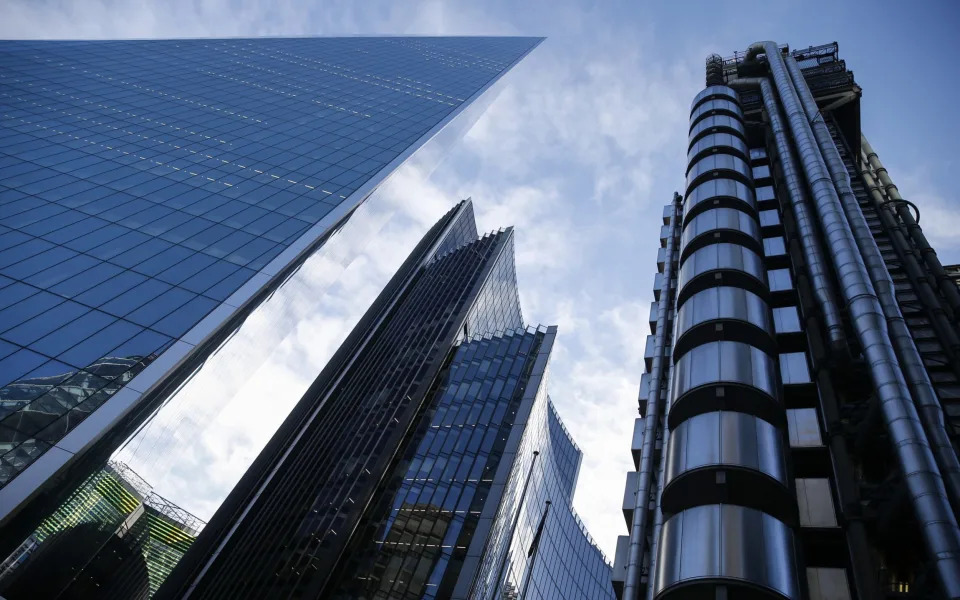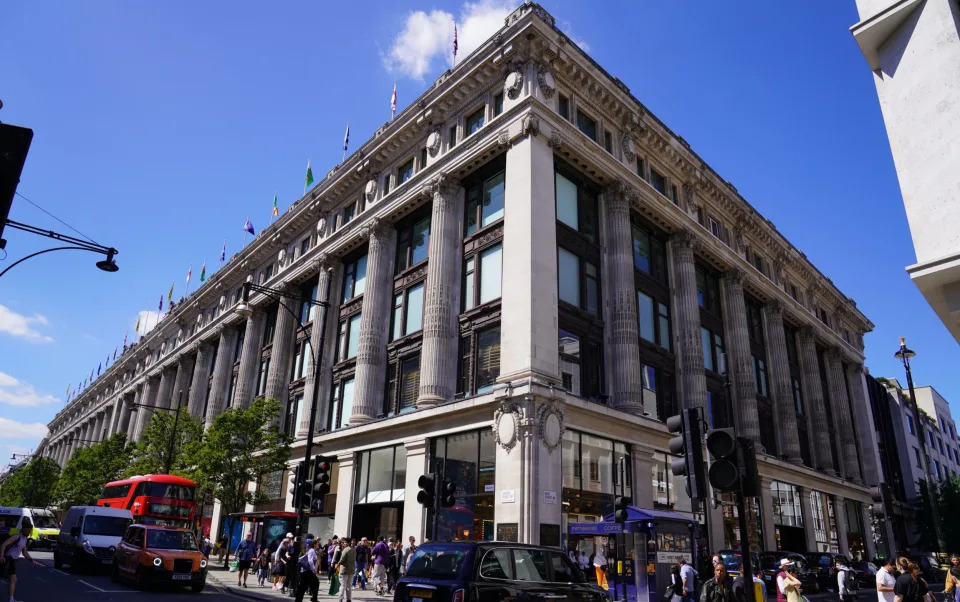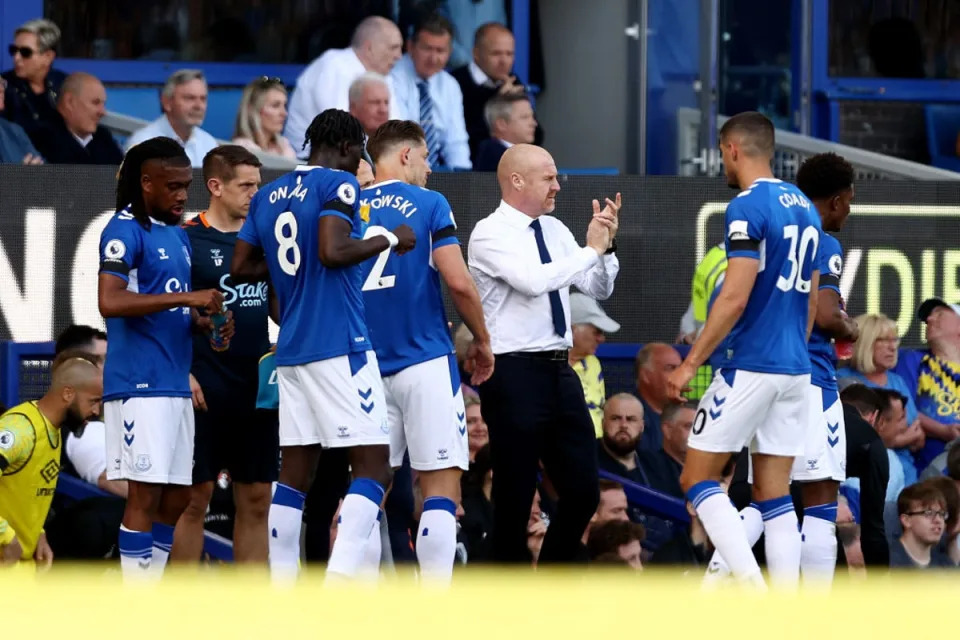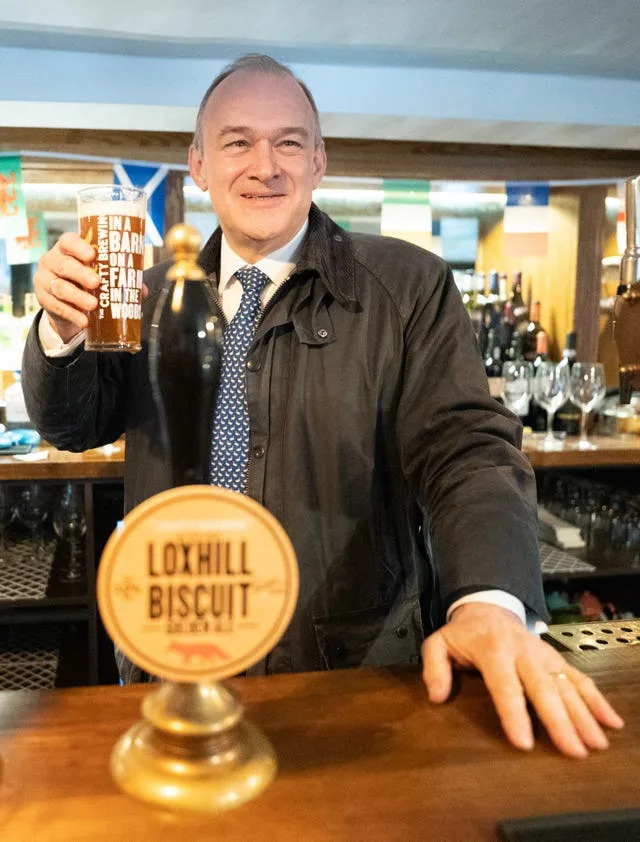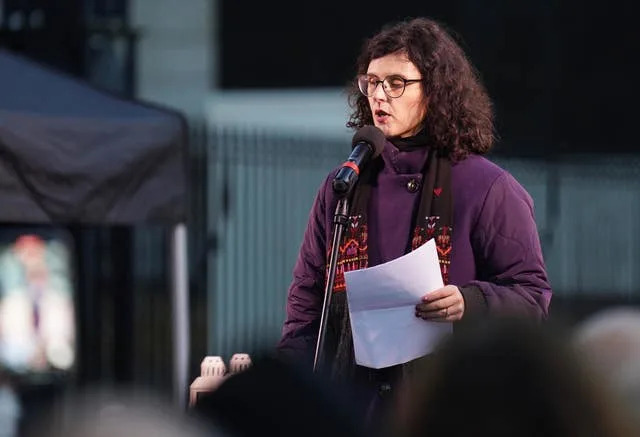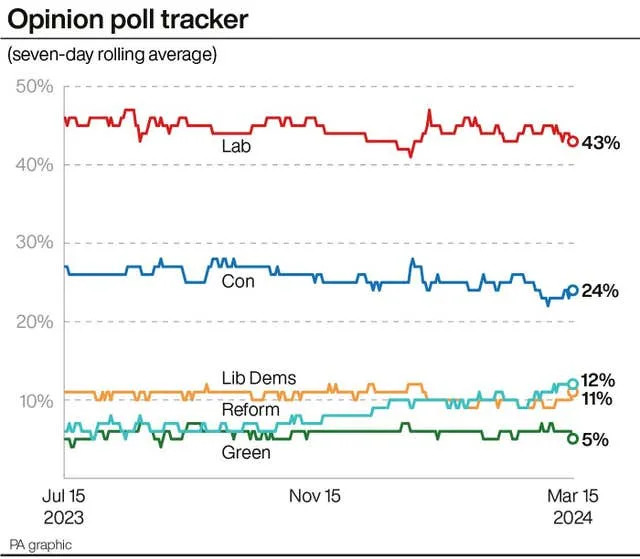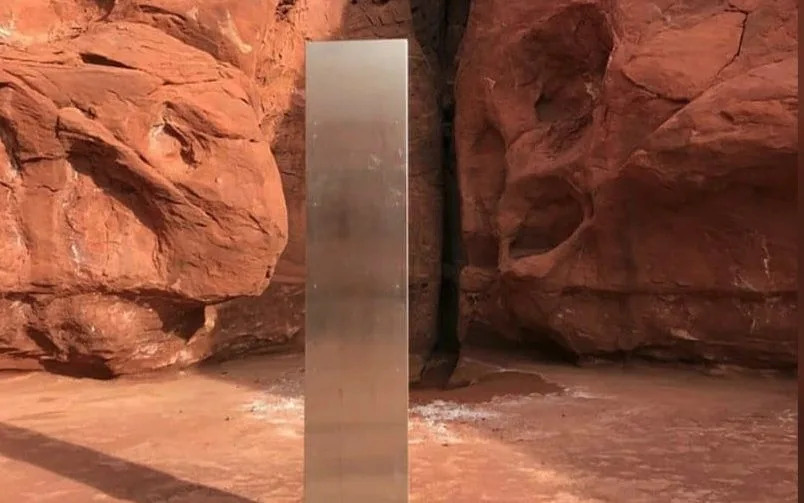Tory Minister Admits Party Could Accept More Cash From Tory Donor In Diane Abbott Race Row
Kevin Schofield
Sun, 17 March 2024
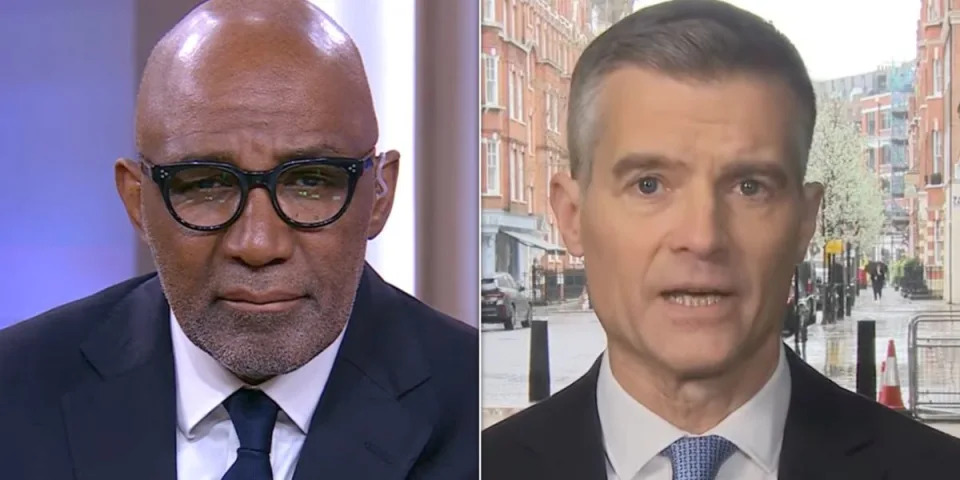
#TrevorPhillips: As a matter of principle would you be comfortable receiving more donations from Frank Hester?
Mark Harper: You're asking me about hypothetical things...
TP: So you personally wouldn't be embarrassed if the Tories got another £5m from Hester?#bbclaurakpic.twitter.com/vI3NE3IF0s
— Haggis_UK 🇬🇧 🇪🇺 (@Haggis_UK) March 17, 2024
A Tory minister has refused to rule out taking millions of pounds more from the donor embroiled in a race row over comments he allegedly made about Diane Abbott.
Frank Hester has not denied saying the MP made him “want to hate all black women” and “should be shot”.
The health tech executive donated £10 million to the Conservatives last year and has reportedly given another £5m so far in 2024.
Labour and the Lib Dems have called on the Tories to return the cash.
But on Sky News this morning, transport secretary Mark Harper repeatedly dodged the question when asked to confirm the Tories have taken more of Hester’s money.
And he also raised the possibility of the party accepting more donations from him, despite Rishi Sunak admitting his comments about Abbott were “racist and wrong”.
Sky presenter Trevor Phillips asked Harper: “Can you confirm the party’s received another £5 million from him and if so, when?”
The minister replied: “No. Any donations that we receive from anybody are declared in the usual way and that’s why you know that Mr Hester made those donations in the past and if there are any donations in the future, and that’s hypothetical, the party will declare them in the usual way.”
Phillips then asked: “There must be an answer to this. They must have told you, or at they just hiding it from you whether or not they’ve got another £5 million, as is being widely reported?”
Harper said: “We’ve declared in the proper way any donations that we’ve received, and if in the future there are any donations, those donations will be declared in the usual way.”
Trying again, the increasingly-frustrated presenter said: “You’re a man of principle, if there are future donations, as a matter of principle, would you be comfortable to receive them?”
Harper again side-stepped the question by saying: “You’re asking me about hypothetical things that might or might not happen in the future.
“We have a proper process for donations and about assessing whether we should accept them and if we accept them we then publish the results and declare them as we’re required to do in an open and transparent way.”
Phillips then asked Harper if he would be “embarrassed if the process ended up with another £5m in the Conservative Party’s locker”.
But Harper replied: “What you’re really doing is you’re asking me the question in a different way. You’re asking me about hypothetical things that might or might not happen in the future.”
Related...
The Tories Have Accepted Another £5 Million From Donor Who Said Diane Abbott 'Should Be Shot'
'Is That An Extremist View?' Naga Munchetty Clashes With Michael Gove Over Tory Donor's Diane Abbott Attack
Kevin Schofield
Sun, 17 March 2024

#TrevorPhillips: As a matter of principle would you be comfortable receiving more donations from Frank Hester?
Mark Harper: You're asking me about hypothetical things...
TP: So you personally wouldn't be embarrassed if the Tories got another £5m from Hester?#bbclaurakpic.twitter.com/vI3NE3IF0s
— Haggis_UK 🇬🇧 🇪🇺 (@Haggis_UK) March 17, 2024
A Tory minister has refused to rule out taking millions of pounds more from the donor embroiled in a race row over comments he allegedly made about Diane Abbott.
Frank Hester has not denied saying the MP made him “want to hate all black women” and “should be shot”.
The health tech executive donated £10 million to the Conservatives last year and has reportedly given another £5m so far in 2024.
Labour and the Lib Dems have called on the Tories to return the cash.
But on Sky News this morning, transport secretary Mark Harper repeatedly dodged the question when asked to confirm the Tories have taken more of Hester’s money.
And he also raised the possibility of the party accepting more donations from him, despite Rishi Sunak admitting his comments about Abbott were “racist and wrong”.
Sky presenter Trevor Phillips asked Harper: “Can you confirm the party’s received another £5 million from him and if so, when?”
The minister replied: “No. Any donations that we receive from anybody are declared in the usual way and that’s why you know that Mr Hester made those donations in the past and if there are any donations in the future, and that’s hypothetical, the party will declare them in the usual way.”
Phillips then asked: “There must be an answer to this. They must have told you, or at they just hiding it from you whether or not they’ve got another £5 million, as is being widely reported?”
Harper said: “We’ve declared in the proper way any donations that we’ve received, and if in the future there are any donations, those donations will be declared in the usual way.”
Trying again, the increasingly-frustrated presenter said: “You’re a man of principle, if there are future donations, as a matter of principle, would you be comfortable to receive them?”
Harper again side-stepped the question by saying: “You’re asking me about hypothetical things that might or might not happen in the future.
“We have a proper process for donations and about assessing whether we should accept them and if we accept them we then publish the results and declare them as we’re required to do in an open and transparent way.”
Phillips then asked Harper if he would be “embarrassed if the process ended up with another £5m in the Conservative Party’s locker”.
But Harper replied: “What you’re really doing is you’re asking me the question in a different way. You’re asking me about hypothetical things that might or might not happen in the future.”
Related...
The Tories Have Accepted Another £5 Million From Donor Who Said Diane Abbott 'Should Be Shot'
'Is That An Extremist View?' Naga Munchetty Clashes With Michael Gove Over Tory Donor's Diane Abbott Attack
Frank Hester racism row: how key figures reacted to remarks about Diane Abbott
Daniel Boffey
Daniel Boffey
Chief reporter
The Guardian
Fri, 15 March 2024

Clockwise from left: Frank Hester, Diane Abbott, Rishi Sunak, Keir Starmer and Kemi Badenoch.
Fri, 15 March 2024

Clockwise from left: Frank Hester, Diane Abbott, Rishi Sunak, Keir Starmer and Kemi Badenoch.
Photograph: Getty Images/AP/ Christopher Pledger/Daily Telegraph
It has been four days since the Guardian reported on the extraordinary remarks by the Tory donor Frank Hester about Diane Abbott. They elicited widespread condemnation for being racist and misogynistic. Here are some of the key voices – and what they have said:
Diane Abbott MP
“Reading his remarks, I was upset but not surprised. This is partly because I am hardened to racist abuse. I receive hundreds of abusive emails, phone calls and letters monthly, and the numbers shoot up whenever I am in the media. Most of this correspondence targets my appearance, questions my intelligence and features classic racist lines such as: ‘go back to where you come from’. Recently, the abuse has taken an even darker turn, with accusations of child abuse. For instance: ‘If you and your child want to fuck children, go back to one of your sick third-world shitholes and bury yourself, sicko.’”
Rishi Sunak, prime minister
“The comments were wrong and they were racist. He [Hester] has rightly apologised for them and that remorse should be accepted. There is no place for racism in Britain, and the government that I lead is living proof of that.”
Keir Starmer, Labour leader
“Those comments about Diane Abbott are just abhorrent. Diane has been a trailblazer, she has paved the way for others. She has probably faced more abuse than any other politician over the years on a sustained basis.”
Kemi Badenoch, business secretary
“Hester’s 2019 comments, as reported, were racist. I welcome his apology. Abbott and I disagree on a lot. But the idea of linking criticism of her to being a black woman is appalling. It’s never acceptable to conflate someone’s views with the colour of their skin. MPs have a difficult job balancing multiple interests – often under threats of intimidation, as we saw recently in parliament. Some people make flippant comments without thinking of this context. This is why there needs to be space for forgiveness where there is contrition.”
Samuel Kasumu, former adviser to Boris Johnson on civil society and communities
“As a black Brit, Diane Abbott is someone who is very historically significant. So it’s very important to note that that every time Diane is attacked we do feel it. We feel a sense of hurt because of her historical significance. She ran so that people like me could walk.”
Dr Alan Stout and Dr Andrew Buist, co-chairs of the BMA general practitioners committee
“There is no room for racism or sexism in the NHS, and the committee believes he [Hester] should resign his position with immediate effect.”
Dr Steve Taylor, spokesperson for the general practice committee of the Doctors’ Association UK
“The Doctors’ Association UK GP committee have significant concerns over the recent comments reportedly made by Frank Hester, owner of TPP, one of the major suppliers of GP IT systems. The GP workforce is a diverse community of people and these comments are deeply upsetting. We agree with other GP bodies that it calls into question the leadership of TPP.”
Jacqueline McKenzie, human rights lawyer
“This has hit [Diane Abbott] to the core and that is what it is meant to do. It is meant to diminish her, it is meant to diminish me, it is meant to diminish all black women.”
George Osborne, former Conservative chancellor
“[It] falls into the definition of the extremism rules. That is the paradox. The Tories are saying we are not going to give money to extremists whilst taking money from someone who appears by their own definition to be an extremist.”
Andy Street, Conservative mayor of the West Midlands
“I would think about the company I kept and I would give that money back. I have to give you my view rather than what the party should do, but I have thought about how I would handle that situation.”
Chris Patten, Tory peer and former cabinet minister
“If he’s made remarks which are racist, how can you in a reasonable way take 10 million smackers of his money? It seems to me that it’s pretty open and shut, as people like Andy Street and others have said. So I think the sooner this is brought to an end the better.”
Sayeeda Warsi, Conservative peer and former party chair
“Elections fought on the money of donors who make racist and offensive statements make for dangerous election campaigns.”
A spokesperson for Frank Hester
“Frank Hester accepts that he was rude about Diane Abbott in a private meeting several years ago but his criticism had nothing to do with her gender nor colour of skin. The Guardian is right when it quotes Frank saying he abhors racism, not least because he experienced it as the child of Irish immigrants in the 1970s. He rang Diane Abbott twice today to try to apologise directly for the hurt he has caused her and is deeply sorry for his remarks. He wishes to make it clear that he regards racism as a poison which has no place in public life.”
Metropolitan police
“On Monday, 11 March officers from the parliamentary liaison and investigation team were contacted in relation to a report about an MP that appeared in the Guardian. We are assessing the matter and are liaising with West Yorkshire police as the alleged incident is believed to have taken place in Leeds. Officers from the parliamentary liaison and investigation team remain in contact with the MP.”
It has been four days since the Guardian reported on the extraordinary remarks by the Tory donor Frank Hester about Diane Abbott. They elicited widespread condemnation for being racist and misogynistic. Here are some of the key voices – and what they have said:
Diane Abbott MP
“Reading his remarks, I was upset but not surprised. This is partly because I am hardened to racist abuse. I receive hundreds of abusive emails, phone calls and letters monthly, and the numbers shoot up whenever I am in the media. Most of this correspondence targets my appearance, questions my intelligence and features classic racist lines such as: ‘go back to where you come from’. Recently, the abuse has taken an even darker turn, with accusations of child abuse. For instance: ‘If you and your child want to fuck children, go back to one of your sick third-world shitholes and bury yourself, sicko.’”
Rishi Sunak, prime minister
“The comments were wrong and they were racist. He [Hester] has rightly apologised for them and that remorse should be accepted. There is no place for racism in Britain, and the government that I lead is living proof of that.”
Keir Starmer, Labour leader
“Those comments about Diane Abbott are just abhorrent. Diane has been a trailblazer, she has paved the way for others. She has probably faced more abuse than any other politician over the years on a sustained basis.”
Kemi Badenoch, business secretary
“Hester’s 2019 comments, as reported, were racist. I welcome his apology. Abbott and I disagree on a lot. But the idea of linking criticism of her to being a black woman is appalling. It’s never acceptable to conflate someone’s views with the colour of their skin. MPs have a difficult job balancing multiple interests – often under threats of intimidation, as we saw recently in parliament. Some people make flippant comments without thinking of this context. This is why there needs to be space for forgiveness where there is contrition.”
Samuel Kasumu, former adviser to Boris Johnson on civil society and communities
“As a black Brit, Diane Abbott is someone who is very historically significant. So it’s very important to note that that every time Diane is attacked we do feel it. We feel a sense of hurt because of her historical significance. She ran so that people like me could walk.”
Dr Alan Stout and Dr Andrew Buist, co-chairs of the BMA general practitioners committee
“There is no room for racism or sexism in the NHS, and the committee believes he [Hester] should resign his position with immediate effect.”
Dr Steve Taylor, spokesperson for the general practice committee of the Doctors’ Association UK
“The Doctors’ Association UK GP committee have significant concerns over the recent comments reportedly made by Frank Hester, owner of TPP, one of the major suppliers of GP IT systems. The GP workforce is a diverse community of people and these comments are deeply upsetting. We agree with other GP bodies that it calls into question the leadership of TPP.”
Jacqueline McKenzie, human rights lawyer
“This has hit [Diane Abbott] to the core and that is what it is meant to do. It is meant to diminish her, it is meant to diminish me, it is meant to diminish all black women.”
George Osborne, former Conservative chancellor
“[It] falls into the definition of the extremism rules. That is the paradox. The Tories are saying we are not going to give money to extremists whilst taking money from someone who appears by their own definition to be an extremist.”
Andy Street, Conservative mayor of the West Midlands
“I would think about the company I kept and I would give that money back. I have to give you my view rather than what the party should do, but I have thought about how I would handle that situation.”
Chris Patten, Tory peer and former cabinet minister
“If he’s made remarks which are racist, how can you in a reasonable way take 10 million smackers of his money? It seems to me that it’s pretty open and shut, as people like Andy Street and others have said. So I think the sooner this is brought to an end the better.”
Sayeeda Warsi, Conservative peer and former party chair
“Elections fought on the money of donors who make racist and offensive statements make for dangerous election campaigns.”
A spokesperson for Frank Hester
“Frank Hester accepts that he was rude about Diane Abbott in a private meeting several years ago but his criticism had nothing to do with her gender nor colour of skin. The Guardian is right when it quotes Frank saying he abhors racism, not least because he experienced it as the child of Irish immigrants in the 1970s. He rang Diane Abbott twice today to try to apologise directly for the hurt he has caused her and is deeply sorry for his remarks. He wishes to make it clear that he regards racism as a poison which has no place in public life.”
Metropolitan police
“On Monday, 11 March officers from the parliamentary liaison and investigation team were contacted in relation to a report about an MP that appeared in the Guardian. We are assessing the matter and are liaising with West Yorkshire police as the alleged incident is believed to have taken place in Leeds. Officers from the parliamentary liaison and investigation team remain in contact with the MP.”
Rishi Sunak ‘visited Frank Hester’s office on helicopter trip paid for by donor’
Sophie Wingate,
Sophie Wingate,
PA Deputy Political Editor
Sat, 16 March 2024
Rishi Sunak reportedly visited Frank Hester’s office on a £16,000 helicopter trip to Leeds paid for by the businessman last year, raising questions about whether the Tory backer’s £10 million donations have bought him access to the Prime Minister.
Mr Sunak is facing calls to reveal the extent of his relationship with Mr Hester following the emergence of comments the donor allegedly made about MP Diane Abbott – that she made him want to “hate all black women” and “should be shot”.
The Prime Minister has this week come under fire for his handling of the fallout from the remarks. He eventually described them as “racist” but only after Cabinet minister Kemi Badenoch broke ranks with No 10 to condemn them as such.
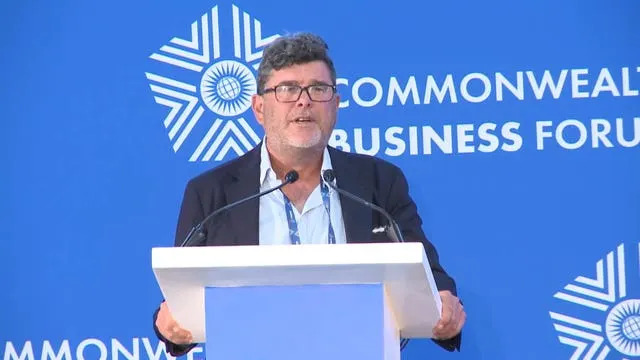
Frank Hester reportedly paid for Rishi Sunak’s helicopter ride to Leeds, where the PM visited the businessman’s company (CHOGM Rwanda 2022/YouTube/PA)
The Guardian, which broke the story on Mr Hester’s comments, on Saturday reported that he paid for Mr Sunak’s travel costs to Leeds, where the Prime Minister got a private tour of his company.
The newspaper said the visit came around three weeks after Mr Hester’s software firm, the Phoenix Partnership (TPP), gave a second £5 million tranche to Mr Sunak’s party last November.
He had already individually donated £5 million in May while another £5 million is reportedly on the table.
Mr Sunak was pictured meeting small business owners at a jewellery studio in Farsley, West Yorkshire, on November 23.
He visited TPP’s offices in Leeds for around an hour later that day, the Guardian reported, citing unnamed sources.
No 10 declined to comment on the Prime Minister’s “private meetings”.
Labour Party chairwoman Anneliese Dodds said: “Everyone can see that Frank Hester’s disgusting remarks were clearly racist and misogynistic. Rishi Sunak keeping these millions is inexcusable.
“There are serious questions to answer on Rishi Sunak’s close relationship with Frank Hester.
“The Prime Minister must urgently confirm what was discussed, and whether Frank Hester’s contract running over 60% of confidential UK health data or Government AI policy came up.
“And Rishi Sunak needs to grow a backbone, pay this money back, cut ties and deal with the extreme views that appear to be tolerated in his party.”
A No 10 source said: “Donations such as for flights are all publicly available in his declarations of interest. Wouldn’t get into his private meetings.”

Diane Abbott was the target of Frank Hester’s alleged racist remarks in 2019
Sat, 16 March 2024
Rishi Sunak reportedly visited Frank Hester’s office on a £16,000 helicopter trip to Leeds paid for by the businessman last year, raising questions about whether the Tory backer’s £10 million donations have bought him access to the Prime Minister.
Mr Sunak is facing calls to reveal the extent of his relationship with Mr Hester following the emergence of comments the donor allegedly made about MP Diane Abbott – that she made him want to “hate all black women” and “should be shot”.
The Prime Minister has this week come under fire for his handling of the fallout from the remarks. He eventually described them as “racist” but only after Cabinet minister Kemi Badenoch broke ranks with No 10 to condemn them as such.

Frank Hester reportedly paid for Rishi Sunak’s helicopter ride to Leeds, where the PM visited the businessman’s company (CHOGM Rwanda 2022/YouTube/PA)
The Guardian, which broke the story on Mr Hester’s comments, on Saturday reported that he paid for Mr Sunak’s travel costs to Leeds, where the Prime Minister got a private tour of his company.
The newspaper said the visit came around three weeks after Mr Hester’s software firm, the Phoenix Partnership (TPP), gave a second £5 million tranche to Mr Sunak’s party last November.
He had already individually donated £5 million in May while another £5 million is reportedly on the table.
Mr Sunak was pictured meeting small business owners at a jewellery studio in Farsley, West Yorkshire, on November 23.
He visited TPP’s offices in Leeds for around an hour later that day, the Guardian reported, citing unnamed sources.
No 10 declined to comment on the Prime Minister’s “private meetings”.
Labour Party chairwoman Anneliese Dodds said: “Everyone can see that Frank Hester’s disgusting remarks were clearly racist and misogynistic. Rishi Sunak keeping these millions is inexcusable.
“There are serious questions to answer on Rishi Sunak’s close relationship with Frank Hester.
“The Prime Minister must urgently confirm what was discussed, and whether Frank Hester’s contract running over 60% of confidential UK health data or Government AI policy came up.
“And Rishi Sunak needs to grow a backbone, pay this money back, cut ties and deal with the extreme views that appear to be tolerated in his party.”
A No 10 source said: “Donations such as for flights are all publicly available in his declarations of interest. Wouldn’t get into his private meetings.”

Diane Abbott was the target of Frank Hester’s alleged racist remarks in 2019
(Jonathan Brady/PA)
Mr Hester has posted on LinkedIn about attending Mr Sunak’s discussion on artificial intelligence with tech billionaire Elon Musk last year and told the Telegraph: “I’ve had some quite long conversations with Rishi about AI.”
Mr Hester has apologised for making “rude” comments about Ms Abbott, the first black woman elected to Parliament, but claimed they had “nothing to do with her gender nor colour of skin”.
The Prime Minister has insisted the donor’s “remorse should be accepted” as he resisted calls to hand back his £10 million donations amid the row.
Ms Abbott on Friday said “no Conservative has apologised” to her after the emergence of Mr Hester’s 2019 verbal attack.
The veteran MP told Channel 4 News: “They keep saying that the Hester guy, he’s apologised. He’s not apologised. He’s apologised for being rude, whereas in fact he was racist, and he’s not apologised for that.
“In fact, he was inciting violence. He’s not apologised for that.”
Mr Hester has posted on LinkedIn about attending Mr Sunak’s discussion on artificial intelligence with tech billionaire Elon Musk last year and told the Telegraph: “I’ve had some quite long conversations with Rishi about AI.”
Mr Hester has apologised for making “rude” comments about Ms Abbott, the first black woman elected to Parliament, but claimed they had “nothing to do with her gender nor colour of skin”.
The Prime Minister has insisted the donor’s “remorse should be accepted” as he resisted calls to hand back his £10 million donations amid the row.
Ms Abbott on Friday said “no Conservative has apologised” to her after the emergence of Mr Hester’s 2019 verbal attack.
The veteran MP told Channel 4 News: “They keep saying that the Hester guy, he’s apologised. He’s not apologised. He’s apologised for being rude, whereas in fact he was racist, and he’s not apologised for that.
“In fact, he was inciting violence. He’s not apologised for that.”
GPs call for health tech boss Frank Hester to resign after Abbott remarks
Matthew Weaver and Phillip Inman
Fri, 15 March 2024

Frank Hester’s firm TPP runs the electronic patient records of
Matthew Weaver and Phillip Inman
Fri, 15 March 2024

Frank Hester’s firm TPP runs the electronic patient records of
almost half the GP practices in the UK.
The motion said: “This meeting is disgusted by the reported violent, openly racist and misogynistic comments, made by Frank Hester, director of The Phoenix Partnership (TPP), and directed at the Rt Hon Ms Diane Abbott MP.”
The GPC also noted that Hester’s comments “contravened NHS England’s fit and proper person test framework introduced in response to the 2019 Kark review recommendations”.
The motion “calls upon UK health boards to apply their own processes vigilantly when contracting external stakeholders whose views and values may not align with the wider professional NHS workforce”.
After the meeting, Dr Alan Stout and Dr Andrew Buist, co-chairs of the GPC, said: “This emergency motion makes clear how appalled GPs are. There is no room for racism or sexism in the NHS, and the committee believes he should resign his position with immediate effect.”
TPP has received more than £400m in contracts from the NHS and other government bodies since 2016.
Hester has given £10m to the Conservatives, making him the party’s largest donor. He is also reported to have donated a further £5m earlier this year. Rishi Sunak is under increasing pressure to return the money after the disclosure of Hester’s remarks.
When the £5m donation was announced this month, Hester rejected the idea that he was giving money to secure more government contracts, saying many came from hospitals and GPs. “GPs decide which software they’re using, not Rishi Sunak,” he said.
Dr Steve Taylor, a spokesperson for the general practice committee of the Doctors’ Association UK, backed the GPC motion.
He said: “Doctors’ Association UK GP committee have significant concerns over the recent comments reportedly made by Frank Hester, owner of TPP, one of the major suppliers of GP IT systems. The GP workforce is a diverse community of people and these comments are deeply upsetting. We agree with other GP bodies that it calls into question the leadership of TPP.”
TPP has been contacted for comment.
Meanwhile, the leaders of 10 prominent anti-racism groups have written to Sunak raising concerns about Hester’s remarks and calling on the prime minister to “unequivocally commit to fighting racism”.
They said “an increasingly normalised culture of racism that has been allowed to fester under the current administration” meant Hester “felt emboldened to express vile sentiments”.
The letter signed by David Weaver, the chair of Operation Black Vote; Shabna Begum, the chief executive of the Runnymede Trust; Timi Okuwa, of the Black Equity Organisation; Jeremy Crook, of Action for Race Equality; and Zara Mohammed, secretary general of the Muslim Council of Britain, urged Sunak to take “immediate and tangible steps to address this situation”.
They said: “We would invite you to take this opportunity to champion the cause of anti-racism and to lead by example, demonstrating that the UK government is unequivocally committed to fighting racism and fostering a society where equality, respect, and inclusivity are paramount.”
Lee Jasper, a signatory and chair of the Alliance of Police Accountability, said Abbott’s case had brought together a broad coalition of leaders from the most influential UK African, Asian and Caribbean anti-racist groups “in a remarkable show of unity”.
He said the case raised questions about political fundraising ethics and “casts a spotlight on the ongoing challenges of racism and sexism in UK politics”.
He said: “It serves as a stark reminder of the importance of consistent and principled stands against race discrimination and the need for all political parties to reflect deeply on their policies, practices and responses to racism within their ranks.”
Photograph: George Cracknell Wright
GPs are calling on the Tory donor Frank Hester to resign from his health tech company after his remarks about Diane Abbott, which have been widely condemned as racist and misogynist.
Hester’s company TPP runs the electronic patient records of almost half the medical practices in the UK, making them his main UK clients. On Thursday the BMA’s general practice committee (GPC), which represent all UK GPs, voted in favour of an emergency motion urging Hester to stand down from the company with immediate effect.
The Guardian revealed on Monday that at a meeting in 2019, Hester said seeing Abbott on TV made “you want to hate all black women” and that the long-serving MP “should be shot”. Hester has apologised for the remarks but denied they were motivated by race or gender.
The GPC urged family doctors to consider Hester’s comments about Abbott before agreeing to sign any more contracts with TPP.
GPs are calling on the Tory donor Frank Hester to resign from his health tech company after his remarks about Diane Abbott, which have been widely condemned as racist and misogynist.
Hester’s company TPP runs the electronic patient records of almost half the medical practices in the UK, making them his main UK clients. On Thursday the BMA’s general practice committee (GPC), which represent all UK GPs, voted in favour of an emergency motion urging Hester to stand down from the company with immediate effect.
The Guardian revealed on Monday that at a meeting in 2019, Hester said seeing Abbott on TV made “you want to hate all black women” and that the long-serving MP “should be shot”. Hester has apologised for the remarks but denied they were motivated by race or gender.
The GPC urged family doctors to consider Hester’s comments about Abbott before agreeing to sign any more contracts with TPP.
The motion said: “This meeting is disgusted by the reported violent, openly racist and misogynistic comments, made by Frank Hester, director of The Phoenix Partnership (TPP), and directed at the Rt Hon Ms Diane Abbott MP.”
The GPC also noted that Hester’s comments “contravened NHS England’s fit and proper person test framework introduced in response to the 2019 Kark review recommendations”.
The motion “calls upon UK health boards to apply their own processes vigilantly when contracting external stakeholders whose views and values may not align with the wider professional NHS workforce”.
After the meeting, Dr Alan Stout and Dr Andrew Buist, co-chairs of the GPC, said: “This emergency motion makes clear how appalled GPs are. There is no room for racism or sexism in the NHS, and the committee believes he should resign his position with immediate effect.”
TPP has received more than £400m in contracts from the NHS and other government bodies since 2016.
Hester has given £10m to the Conservatives, making him the party’s largest donor. He is also reported to have donated a further £5m earlier this year. Rishi Sunak is under increasing pressure to return the money after the disclosure of Hester’s remarks.
When the £5m donation was announced this month, Hester rejected the idea that he was giving money to secure more government contracts, saying many came from hospitals and GPs. “GPs decide which software they’re using, not Rishi Sunak,” he said.
Dr Steve Taylor, a spokesperson for the general practice committee of the Doctors’ Association UK, backed the GPC motion.
He said: “Doctors’ Association UK GP committee have significant concerns over the recent comments reportedly made by Frank Hester, owner of TPP, one of the major suppliers of GP IT systems. The GP workforce is a diverse community of people and these comments are deeply upsetting. We agree with other GP bodies that it calls into question the leadership of TPP.”
TPP has been contacted for comment.
Meanwhile, the leaders of 10 prominent anti-racism groups have written to Sunak raising concerns about Hester’s remarks and calling on the prime minister to “unequivocally commit to fighting racism”.
They said “an increasingly normalised culture of racism that has been allowed to fester under the current administration” meant Hester “felt emboldened to express vile sentiments”.
The letter signed by David Weaver, the chair of Operation Black Vote; Shabna Begum, the chief executive of the Runnymede Trust; Timi Okuwa, of the Black Equity Organisation; Jeremy Crook, of Action for Race Equality; and Zara Mohammed, secretary general of the Muslim Council of Britain, urged Sunak to take “immediate and tangible steps to address this situation”.
They said: “We would invite you to take this opportunity to champion the cause of anti-racism and to lead by example, demonstrating that the UK government is unequivocally committed to fighting racism and fostering a society where equality, respect, and inclusivity are paramount.”
Lee Jasper, a signatory and chair of the Alliance of Police Accountability, said Abbott’s case had brought together a broad coalition of leaders from the most influential UK African, Asian and Caribbean anti-racist groups “in a remarkable show of unity”.
He said the case raised questions about political fundraising ethics and “casts a spotlight on the ongoing challenges of racism and sexism in UK politics”.
He said: “It serves as a stark reminder of the importance of consistent and principled stands against race discrimination and the need for all political parties to reflect deeply on their policies, practices and responses to racism within their ranks.”
Health workers’ unions call for Frank Hester to lose NHS contracts
Daniel Boffey, Matthew Weaver, Rowena Mason and Henry Dyer
Fri, 15 March 2024

Rishi Sunak has been urged to return the money given to his party by Frank Hester
Daniel Boffey, Matthew Weaver, Rowena Mason and Henry Dyer
Fri, 15 March 2024

Rishi Sunak has been urged to return the money given to his party by Frank Hester
Photograph: No Credit
Unions representing GPs and health workers have called on the Conservative donor Frank Hester to stand down from running NHS contracts, saying his “racist and misogynistic comments” breach its fit and proper person test.
Hester’s company TPP runs the electronic patient records of almost half the medical practices in the UK. His remarks about Diane Abbott have prompted calls for him to step aside amid a growing political row.
Downing Street refused to say how many times the prime minister has met the Conservative donor since he gave the party £10m.
The pair are believed to have met in the afternoon on the day after the autumn statement in November when Hester paid about £16,000 in travel costs for Sunak to fly to Leeds by helicopter for a political visit. Downing Street declined to “get into the details” of whether they met.
The Guardian can also reveal the pair were photographed together at a party fundraiser in June last year.
It is understood the health tech entrepreneur attended at least two party events in London: the Conservatives’ main summer party in central London last June, where they were photographed, and another just two weeks ago.
Hester, who has worked on artificial intelligence as part of his IT business, has previously said he has had “some quite long conversations with Rishi about AI”.
He also tweeted about witnessing a “brilliant AI discussion between Rishi Sunak and Elon Musk” in November last year.
Anneliese Dodds, Labour’s chair, said Sunak must be clear about their relationship.
“Rishi Sunak has shown he is just too weak to pay back his millions and cut ties completely. Rishi Sunak needs to come clean about the relationship he has with Frank Hester, including how many times he has met with him since becoming prime minister.”
The NHS’s fit and proper person test applies to the leadership of trusts but accompanying notes suggest that other bodies “may also want to follow this guidance as a matter of good practice”. Among the minimum expectations is the avoidance of discrimination as set out in the Equality Act 2010.
The Guardian revealed on Monday that at a meeting in 2019, Hester said seeing Abbott on TV made “you want to hate all black women” and that the long-serving MP “should be shot”. He has apologised for the remarks but denied they were motivated by race or gender.
On Thursday the British Medical Association’s general practitioners’ committee (GPC), which represent all UK GPs, voted in favour of an emergency motion that said Hester’s comments “contravened NHS England’s fit and proper person test framework introduced in response to the 2019 Kark review recommendations”.
The motion called on “UK health boards to apply their own processes vigilantly when contracting external stakeholders whose views and values may not align with the wider professional NHS workforce”. It said he should resign from his company with immediate effect.
After the meeting, Dr Alan Stout and Dr Andrew Buist, co-chairs of the GPC, said: “This emergency motion makes clear how appalled GPs are. There is no room for racism or sexism in the NHS, and the committee believes he should resign his position with immediate effect.”
TPP did not respond to a request for comment.
Dr Steve Taylor, a spokesperson for the GP committee of the Doctors’ Association UK, also backed the GPC motion.
He said: “Doctors’ Association UK GP committee have significant concerns over the recent comments reportedly made by Frank Hester, owner of TPP, one of the major suppliers of GP IT systems. The GP workforce is a diverse community of people and these comments are deeply upsetting. We agree with other GP bodies that it calls into question the leadership of TPP.”
TPP has received more than £400m in contracts from the NHS and other government bodies since 2016.
Christina McAnea, the general secretary of Unison, which represents half a million NHS workers, echoed the views of the doctors’ body.
She said: “The abusive comments levelled at Diane Abbott were appalling. People rightly expect that companies providing public services aren’t headed by individuals with racist views.”
Hester has given at least £10m to the Conservatives, making him the party’s largest donor. He is also reported to have donated a further £5m earlier this year.
Sunak is under increasing pressure to return the money after the disclosure of Hester’s remarks, amid wider unrest about his leadership. On Friday night it was reported that MPs on the right of the the Conservative party had held talks with moderates about uniting behind Penny Mordaunt to replace him.
“The mood has shifted a long way this week,’ a source told the Daily Mail. “There is a feeling that we cannot go on as we are and that even Penny would be better.”
Rachel Harrison, the national secretary of the GMB, whose members include nurses and ambulance drivers, said there should be a pause on granting any further contracts to Hester’s company.
She said: “The Hester affair is just another example of a rotten Conservative government failing the country at every turn.
“The public should expect the highest standards from public sector suppliers, and it’s time to call a halt on the money-go-round from public contracts straight into the Tory party’s coffers. There should be a moratorium on new NHS contracts while he is negotiating a new £5m donation to the Conservatives – it’s a clear conflict of interest.”
When the £5m donation was announced this month, Hester rejected the idea that he was giving money to secure more government contracts, saying many came from hospitals and GPs. “GPs decide which software they’re using, not Rishi Sunak,” he said.
A petition calling for Hester to be stripped of the OBE he was awarded in 2015 for services to healthcare has 89,000 signatures.
Among those supporting the demand is Dorothy Price, a professor of history of art at the University of Bristol, where she was a founder member and the inaugural director of the centre for black humanities.
Price tweeted: “Frank Hester has made vile comments about Diane Abbott. He doesn’t deserve to be honoured, but holds an OBE. Agree? Sign the petition demanding his OBE be stripped from him now!”
The leaders of 10 prominent anti-racism groups have written to Sunak about Hester’s remarks, calling on the prime minister to “unequivocally commit to fighting racism”.
They said “an increasingly normalised culture of racism that has been allowed to fester under the current administration” meant Hester “felt emboldened to express vile sentiments”.
The letter – signed by David Weaver, the chair of Operation Black Vote; Shabna Begum, the chief executive of the Runnymede Trust; Timi Okuwa of the Black Equity Organisation; Jeremy Crook of Action for Race Equality; and Zara Mohammed, secretary general of the Muslim Council of Britain – urged Sunak to take “immediate and tangible steps to address this situation”.
They said: “We would invite you to take this opportunity to champion the cause of anti-racism and to lead by example, demonstrating that the UK government is unequivocally committed to fighting racism and fostering a society where equality, respect and inclusivity are paramount.”
Unions representing GPs and health workers have called on the Conservative donor Frank Hester to stand down from running NHS contracts, saying his “racist and misogynistic comments” breach its fit and proper person test.
Hester’s company TPP runs the electronic patient records of almost half the medical practices in the UK. His remarks about Diane Abbott have prompted calls for him to step aside amid a growing political row.
Downing Street refused to say how many times the prime minister has met the Conservative donor since he gave the party £10m.
The pair are believed to have met in the afternoon on the day after the autumn statement in November when Hester paid about £16,000 in travel costs for Sunak to fly to Leeds by helicopter for a political visit. Downing Street declined to “get into the details” of whether they met.
The Guardian can also reveal the pair were photographed together at a party fundraiser in June last year.
It is understood the health tech entrepreneur attended at least two party events in London: the Conservatives’ main summer party in central London last June, where they were photographed, and another just two weeks ago.
Hester, who has worked on artificial intelligence as part of his IT business, has previously said he has had “some quite long conversations with Rishi about AI”.
He also tweeted about witnessing a “brilliant AI discussion between Rishi Sunak and Elon Musk” in November last year.
Anneliese Dodds, Labour’s chair, said Sunak must be clear about their relationship.
“Rishi Sunak has shown he is just too weak to pay back his millions and cut ties completely. Rishi Sunak needs to come clean about the relationship he has with Frank Hester, including how many times he has met with him since becoming prime minister.”
The NHS’s fit and proper person test applies to the leadership of trusts but accompanying notes suggest that other bodies “may also want to follow this guidance as a matter of good practice”. Among the minimum expectations is the avoidance of discrimination as set out in the Equality Act 2010.
The Guardian revealed on Monday that at a meeting in 2019, Hester said seeing Abbott on TV made “you want to hate all black women” and that the long-serving MP “should be shot”. He has apologised for the remarks but denied they were motivated by race or gender.
On Thursday the British Medical Association’s general practitioners’ committee (GPC), which represent all UK GPs, voted in favour of an emergency motion that said Hester’s comments “contravened NHS England’s fit and proper person test framework introduced in response to the 2019 Kark review recommendations”.
The motion called on “UK health boards to apply their own processes vigilantly when contracting external stakeholders whose views and values may not align with the wider professional NHS workforce”. It said he should resign from his company with immediate effect.
After the meeting, Dr Alan Stout and Dr Andrew Buist, co-chairs of the GPC, said: “This emergency motion makes clear how appalled GPs are. There is no room for racism or sexism in the NHS, and the committee believes he should resign his position with immediate effect.”
TPP did not respond to a request for comment.
Dr Steve Taylor, a spokesperson for the GP committee of the Doctors’ Association UK, also backed the GPC motion.
He said: “Doctors’ Association UK GP committee have significant concerns over the recent comments reportedly made by Frank Hester, owner of TPP, one of the major suppliers of GP IT systems. The GP workforce is a diverse community of people and these comments are deeply upsetting. We agree with other GP bodies that it calls into question the leadership of TPP.”
TPP has received more than £400m in contracts from the NHS and other government bodies since 2016.
Christina McAnea, the general secretary of Unison, which represents half a million NHS workers, echoed the views of the doctors’ body.
She said: “The abusive comments levelled at Diane Abbott were appalling. People rightly expect that companies providing public services aren’t headed by individuals with racist views.”
Hester has given at least £10m to the Conservatives, making him the party’s largest donor. He is also reported to have donated a further £5m earlier this year.
Sunak is under increasing pressure to return the money after the disclosure of Hester’s remarks, amid wider unrest about his leadership. On Friday night it was reported that MPs on the right of the the Conservative party had held talks with moderates about uniting behind Penny Mordaunt to replace him.
“The mood has shifted a long way this week,’ a source told the Daily Mail. “There is a feeling that we cannot go on as we are and that even Penny would be better.”
Rachel Harrison, the national secretary of the GMB, whose members include nurses and ambulance drivers, said there should be a pause on granting any further contracts to Hester’s company.
She said: “The Hester affair is just another example of a rotten Conservative government failing the country at every turn.
“The public should expect the highest standards from public sector suppliers, and it’s time to call a halt on the money-go-round from public contracts straight into the Tory party’s coffers. There should be a moratorium on new NHS contracts while he is negotiating a new £5m donation to the Conservatives – it’s a clear conflict of interest.”
When the £5m donation was announced this month, Hester rejected the idea that he was giving money to secure more government contracts, saying many came from hospitals and GPs. “GPs decide which software they’re using, not Rishi Sunak,” he said.
A petition calling for Hester to be stripped of the OBE he was awarded in 2015 for services to healthcare has 89,000 signatures.
Among those supporting the demand is Dorothy Price, a professor of history of art at the University of Bristol, where she was a founder member and the inaugural director of the centre for black humanities.
Price tweeted: “Frank Hester has made vile comments about Diane Abbott. He doesn’t deserve to be honoured, but holds an OBE. Agree? Sign the petition demanding his OBE be stripped from him now!”
The leaders of 10 prominent anti-racism groups have written to Sunak about Hester’s remarks, calling on the prime minister to “unequivocally commit to fighting racism”.
They said “an increasingly normalised culture of racism that has been allowed to fester under the current administration” meant Hester “felt emboldened to express vile sentiments”.
The letter – signed by David Weaver, the chair of Operation Black Vote; Shabna Begum, the chief executive of the Runnymede Trust; Timi Okuwa of the Black Equity Organisation; Jeremy Crook of Action for Race Equality; and Zara Mohammed, secretary general of the Muslim Council of Britain – urged Sunak to take “immediate and tangible steps to address this situation”.
They said: “We would invite you to take this opportunity to champion the cause of anti-racism and to lead by example, demonstrating that the UK government is unequivocally committed to fighting racism and fostering a society where equality, respect and inclusivity are paramount.”

